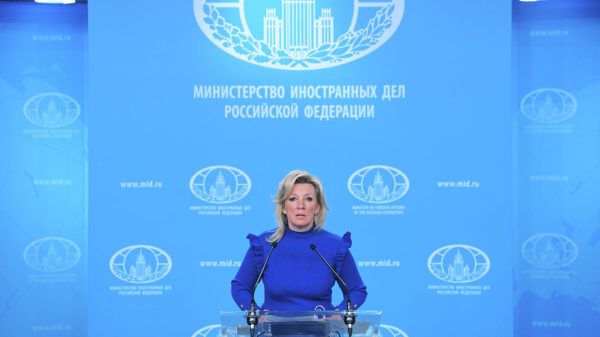
Simon Case said he believed Carrie Johnson was the real prime minister during lockdown, as evidenced by texts messages revealed to Covid inquiry.< /p>
A series of WhatsApp messages between some of Boris Johnson's top aides suggests the then prime minister made decisions about Covid restrictions based solely on his wife's wishes.
In one fiery tweet, Mr Case, appointed cabinet secretary in September 2020, wrote that Ms Johnson was the «real person in charge» at Number 10.The messages Dominic Cummings gave to the inquiry as part of his affidavit are undated but are believed to have been sent sometime in the autumn of 2020, before the government introduced a «tiered» system of regional restrictions.
The conversation begins , as Case tells Cummings and Lee Cain, then No 10 communications director, about a conversation he had with then health secretary Matt Hancock:
The new three-tier system came into force on October 14, 2020, but it did not prove effective and a second national lockdown had to be declared, which will come into force on November 5.
News that another lockdown had been agreed was leaked to the Mail, Times and Sun on the evening of Friday 30 October, forcing Johnson to make the announcement earlier than expected on Saturday.This caused a wave of unrest. a huge row in Whitehall over the identity of the «talking rat» who leaked details of the decision.
Fingers were pointed at Hancock, who denied the allegations. Figures in No 10 blamed Mr Cummings, who blamed Henry Newman, a former adviser to Michael Gove who was by then working in Downing Street.
Whitehall launched an investigation into the leak, but the culprit was never identified.
«Toxic atmosphere»
The text messages shown during testimony by Alex Thomas, director of public service and policy development at the Institute of Government think tank, are the latest in a series of correspondence revealing infighting between governments during the pandemic.
Hugo Keith CC, the inquiry's lawyer, said in his opening address last week that thousands of WhatsApp messages between ministers and advisers handed over to the inquiry painted a «depressing picture of the toxic atmosphere» at No 10 at the height of the pandemic. He described «factional infighting» in the government and «internecine attacks on colleagues».
It was previously revealed that Sir Patrick Vallance, the government's chief scientific adviser during the crisis, had referred the investigation to the night a diary he kept at the height of the pandemic.
In it, he reveals the «chaos» in No 10, as well as what he called Mr Johnson's «bipolar» decision-making.
The Covid inquiry is currently reviewing the evidence in its second module, scrutinizing government decisions. -creativity during the pandemic.
Evidence is scheduled to be heard next month from Mr Johnson, Mr Cummings and Rishi Sunak, the prime minister who has been chancellor during the pandemic.
' ;Bad behavior '
Separately, in Friday's evidence, the inquiry heard that Number 10 tolerated «bad behavior» from senior government leaders during the pandemic.
A damning report prepared in May 2020 by Helen McNamara, then deputy cabinet secretary, reveals the naked anger of civil servants at the “chaos” of the time.
Ms McNamara spoke to more than 45 civil servants in over three days as part of a project to determine how No. 10 and the Cabinet Office could improve the situation. support then Prime Minister Johnson.
“They complained about the 'superhero culture' in Downing Street, and many said junior women working in government were often 'negotiated or ignored'.
The report, read out by Mr Keith, said: that «bad behavior from senior leaders was tolerated» and that «No. 10 was always at war with someone.»
The lawyer said it was «like a condemnation of the system in the No. 10 government and the cabinet.» as far as possible.»
Daisy Cooper, the Liberal Democrats' health and social care spokeswoman, said: «Clearly the whole country was frustrated by a completely chaotic government that failed to grasp the scale of what occurred.
“This paralysis led to tragic consequences, the painful consequences of which are still felt by many today.
“Many will again, and rightly, feel a deep sense of anger towards those who led our response to Covid. They failed in this task and at the same time treated the country with extreme disdain. This whole mess is completely unforgivable.”
The investigation continues.


























































Свежие комментарии